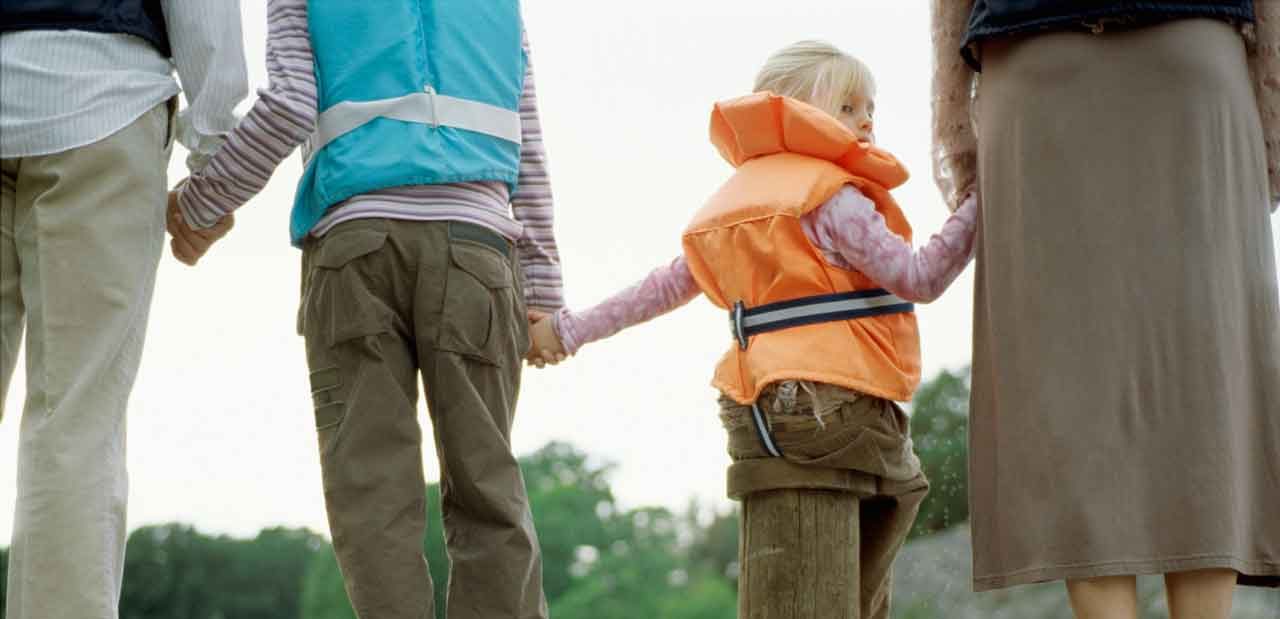May 29, 2018
Summer Safety Tips for Parents

We were sitting on the edge of a family pool at a hotel, talking to other guests. One of the guests had her 2-year-old daughter with her, who was standing on the top step of the pool while wearing arm floaties. The mom was telling us about her years as a competitive swimmer, when our daughter started yelling out that the 2-year-old was under water. The mom dove in instantaneously and pulled her daughter out immediately. It can happen that fast, no matter how vigilant we are as parents.
To that point, here are a few tips to keep in mind to keep summer fun and as safe as possible for you and your kids.
YOU MIGHT ALSO LIKE: Safety On, and In, the Water
Respect water
I have known extremely talented and strong swimmers who have drowned. The force of the ocean can be a challenge for even the most experienced swimmers, and as such poses even more potential danger for youth. Pay attention to warnings from lifeguards, posted signs, and even feedback from other swimmers about things like riptides and take them seriously. At hotels, make sure you are aware of the depth throughout the pool, and make special note of when the depth changes. Sure, it sounds obvious, but when your kids are in the pool, those changes can come up quickly and catch anyone by surprise. For the youngest swimmers, remember that even very shallow water can pose a risk, and the consequences can happen very quickly. For that reason, never leave kids unsupervised around water, not even for a minute.
Enjoy but be mindful of novelty
Summer is a great time for going to new places. But the joy of exploring new terrains needs to be crossed with being mindful of unknown risks. Whether out hiking, walking, or visiting new destinations, keep an eye on the kids and err on the side of enforcing safe boundaries before they go wandering off only to find themselves in trouble. Simple safety habits like always wearing helmets when riding a bike (a rule to be followed at all times) are especially important when your kids are in a new location. The unknown should be an invitation for careful explorations to keep it safe and fun.
YOU MIGHT ALSO LIKE: Staying Safe During Summer Vacations
Be aware of creatures
Being outside is a great perk of summer, but of course there needs to be an awareness of creatures. Bees and insects are everywhere, and can’t be fully avoided, but again a bit of preparation helps. If you happen to see more than a few bees buzzing around, keep kids away. If your kid gets stung, be vigilant for signs of an allergic reaction and act quickly, especially if your child has never been stung before (because you won’t have any history to help inform about an allergic tendency). Always take appropriate precautions if there is a likelihood of ticks. And of course out in the wild a young child may be drawn to a cute little animal, but we need to keep them at a good distance before the mom or dad animal comes out to offer protection of its young.
Enjoy the sun but offer protection
Most kids do not like putting on sunscreen. All kids need to put on sunscreen in a proper way. Case closed. Also be aware that long days at the beach, lake, or park are great, but the heat can be draining, and adequate hydration and breaks from the sun are important. And, of course, there is no safe amount of time to leave a child in a hot car (same goes for animals).
Offering these suggestions can make one feel like a Debbie Downer or a helicopter parent. Not me. We’re not talking about depriving kids of the opportunity to be kids, or trying to put them in bubble wrap. But there’s a big difference – not a fine line – between being intrusive or overprotective, and trying to make sure that we are doing everything we should do to prevent catastrophes. So I’m unapologetic in saying that being aware of the dangers and risks of summer is the best way to make summer as fun as possible for kids.
YOU MIGHT ALSO LIKE: How to Avoid Bees, Mosquitoes, and Snakes


